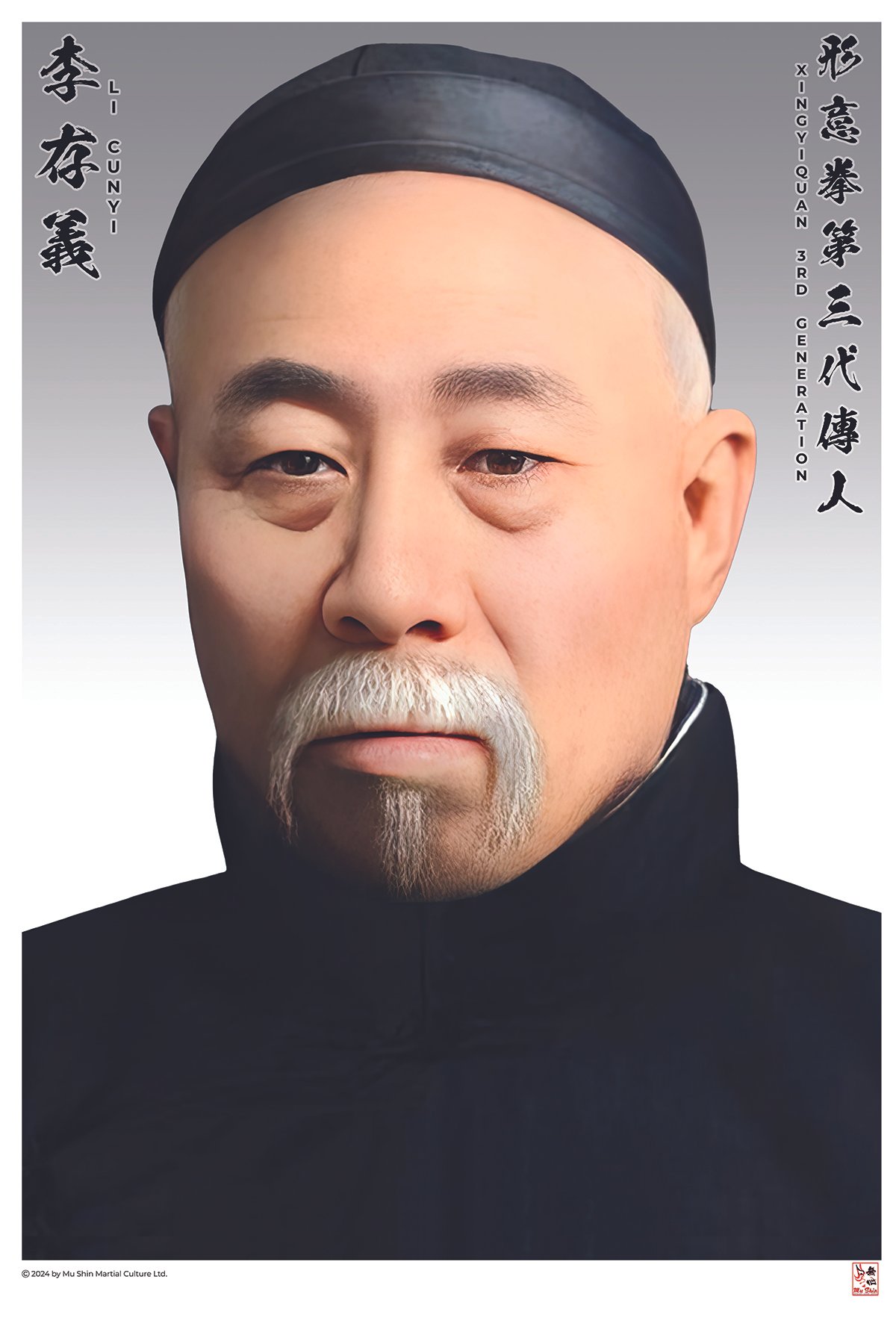Li Cunyi: A Pillar of Chinese Martial Arts
李存义 Li Cunyi (Born 1847 - Died 1921)
Li Cunyi, a martial arts master known for his dedication and prowess, was born in 1847 in Nan Xiao Ying village, Shen County, Hebei province. Growing up in a poor family, he worked as a cart driver from a young age. His travels provided him the opportunity to learn and practice various martial arts styles from different teachers he encountered along the way.
Mastery in Martial Arts
In his mid-life, Li Cunyi studied under the renowned Xíngyì Quán master Liu Qilan. He later moved to Beijing, where he connected with various Baguà Zhǎng practitioners, including Cheng Tinghua. Although he spent some time studying Baguà Zhǎng under the art’s founder, Dong Haichuan, most of his training was under Cheng Tinghua. Additionally, he further honed his Xíngyì Quán skills under the guidance of Guo Yunshen.
Li Cunyi became highly proficient in his arts and gained recognition within the martial community. He was especially renowned for his expertise with the Chinese broadsword, earning the nickname “Single Saber Li.” His skills and virtues were highly regarded by prominent martial artists in northern China.
Military and Bodyguard Career
In 1894, Li Cunyi was appointed by Liu Kunyi as a saber instructor to the Qing military forces. His success in suppressing bandits led to his promotion to an official position in the Jiangxi and Jiangnan areas. However, Li Cunyi had no aspirations for a government career and eventually resigned. He established the Wantong Bodyguard/Caravan Escort Agency in Baoding, employing various martial artists and passing down his skills to them.
During the Boxer Rebellion in 1900, Li Cunyi, then 53 years old, actively participated in the skirmishes against the Eight Nation Alliance. He led attacks with his saber and gained widespread recognition for his bravery, particularly at the Old Long Tou Railway Station in Tianjin.
Teaching and Legacy
After his stint in the bodyguard industry, Li Cunyi focused on teaching martial arts. Along with other prominent martial artists, he established the Chinese Warrior Society, serving as its vice-chairman. Through this society, he prominently spread Xíngyì Quán in northern China.
Li Cunyi was instrumental in the development and spread of Xíngyì Quán, especially in Hebei. In his later years, he taught in his home village, which became a hub for martial arts training due to his influence. He mentored numerous martial artists, many of whom became highly skilled and well-known, including Huang Bonian, Hao Enguang, Shang Yunxiang, Ma Yutang, and others.
Throughout his life, Li Cunyi was dedicated to spreading Xíngyì Quán. He also contributed to the writing and publication of several books on the art, which are still referenced by practitioners today.
Li Cunyi passed away on February 28, 1921. His legacy lives on through his students and the widespread practice of Xíngyì Quán, both in China and worldwide. Many prominent practitioners today trace their lineage back to Li Cunyi, solidifying his status as a pillar in the art of Xíngyì Quán.
If you would like a Li Cunyi poster for your school or your home, we have a wonderful print of him available to order here:
https://www.mushinmartialculture.com/shop/p/li-masters-series-poster
(This blog entry is based on a biography of Li Cunyi found within “Dragon Body, Tiger Spirit” written by Byron Jacobs and available to order here)

